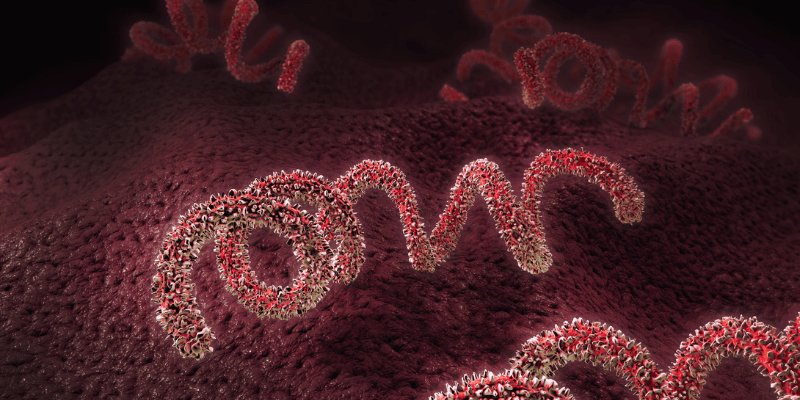Healthy New Jersey
Syphilis
Syphilis
Syphilis is a curable but serious sexually transmitted infection (STI) that progresses in stages if left untreated. It can cause long-term damage to the body, including neurological and organ complications. The good news? Syphilis is completely curable with antibiotics when caught early.
Since syphilis symptoms can be mild or even invisible, regular testing is the only way to know your status. This page covers everything you need to know about syphilis—including how it spreads, symptoms to watch for, and steps you can take to stay safe.

Syphilis Information
Syphilis is an infection caused by the bacterium Treponema pallidum. It spreads through direct contact with syphilis sores, which occur during vaginal, anal, or oral sex. It can also be transmitted from a pregnant person to their baby, which can cause serious health issues for newborns.
Unlike some STIs that may go away on their own, syphilis gets worse over time if left untreated. It moves through four distinct stages, and each stage can affect your body in different ways.
Primary Stage (First Signs of Infection)
- A painless sore (called a chancre) appears at the site of infection (genitals, anus, mouth).
- The sore may go unnoticed because it’s painless and can be hidden inside the body.
- The sore heals on its own within 3-6 weeks, but the infection remains in the body.
Secondary Stage (Flu-like Symptoms and Rash)
- A rash develops—often on the palms of the hands or soles of the feet, but it can appear anywhere.
- Flu-like symptoms: fever, swollen lymph nodes, sore throat, and muscle aches.
- Sores (mucous patches) in the mouth, genitals, or anus.
- Hair loss, headaches, and general fatigue.
- These symptoms may come and go over several months.
Latent Stage (Hidden Syphilis)
- No visible symptoms, but the infection remains in the body.
- This stage can last for years, and without treatment, syphilis can progress to the most dangerous stage.
Tertiary Stage (Severe Health Complications)
- Can occur years or even decades after the initial infection.
- Can cause severe damage to the heart, brain, nerves, and other organs.
- Symptoms may include memory loss, paralysis, vision problems, and difficulty coordinating movements.
Neurosyphilis and Ocular Syphilis Stage (Affect the Brain and Eyes)
- Syphilis can invade the nervous system or eyes at any stage.
- Symptoms may include vision changes, hearing loss, confusion, or difficulty with movement.
Since syphilis can mimic other illnesses, testing is the only way to confirm an infection.
Why is Testing Important?
Since syphilis symptoms can be mild or hidden, many people don’t realize they have it. Regular testing is essential because untreated syphilis can lead to permanent organ damage and increase the risk of HIV infection.
Who Should Get Tested?
- Anyone who is sexually active—especially those with multiple partners.
- Pregnant people (syphilis testing is part of routine prenatal care).
- Men who have sex with men (MSM) and individuals at higher risk.
- People living with HIV.
How to Get Tested for Syphilis?
Testing for syphilis is quick, simple, and confidential. Here’s what to expect:
- Blood Test – A simple blood sample is taken to check for syphilis antibodies.
- Swab Test – If you have a sore, a healthcare provider may swab it to confirm syphilis.
When to Test
- If you have symptoms like a sore, rash, or flu-like illness.
- If you’ve been exposed to syphilis (e.g., if a partner tested positive).
- If you are pregnant, as syphilis can harm a developing baby.
The good news? Syphilis is completely curable with antibiotics.
- Primary, Secondary, or Early Latent Syphilis → A single injection of penicillin is usually enough to cure the infection.
- Late Latent or Tertiary Syphilis → Multiple penicillin injections may be needed.
Important Treatment Steps
- Finish all prescribed treatment—even if symptoms go away.
- Avoid sexual contact for at least 7-10 days after treatment.
- Follow up with your healthcare provider to ensure the infection is fully cleared.
- Inform your partners so they can get tested and treated.
Once treated, syphilis does not return unless you are re-exposed.
Since syphilis spreads through direct contact with sores, prevention strategies include:
- Use condoms and dental dams – They reduce risk but do not provide full protection if the sores are in uncovered areas.
- Get tested regularly – Routine STI screening helps catch syphilis early.
- Talk to your partners about STI testing – Open communication is key.
- Know the signs of syphilis – Checking your body regularly can help catch symptoms early.
Since syphilis does not always have visible symptoms, routine testing is the best way to prevent long-term complications.
Syphilis during pregnancy can cause serious complications, including miscarriage, stillbirth, or congenital syphilis (a life-threatening condition in newborns).
How to Protect the Baby
- Get tested early in pregnancy (syphilis screening is recommended at the first prenatal visit).
- If positive, treatment during pregnancy is safe and can prevent transmission to the baby.
- Babies born to mothers with untreated syphilis may need immediate antibiotic treatment to prevent complications
Syphilis in pregnancy can be prevented with early testing and treatment.

Take Charge of Your Health
- Get tested if you’re sexually active
- Use protection to reduce risk
- If diagnosed, complete treatment and inform your partners
 Official Site of The State of New Jersey
Official Site of The State of New Jersey